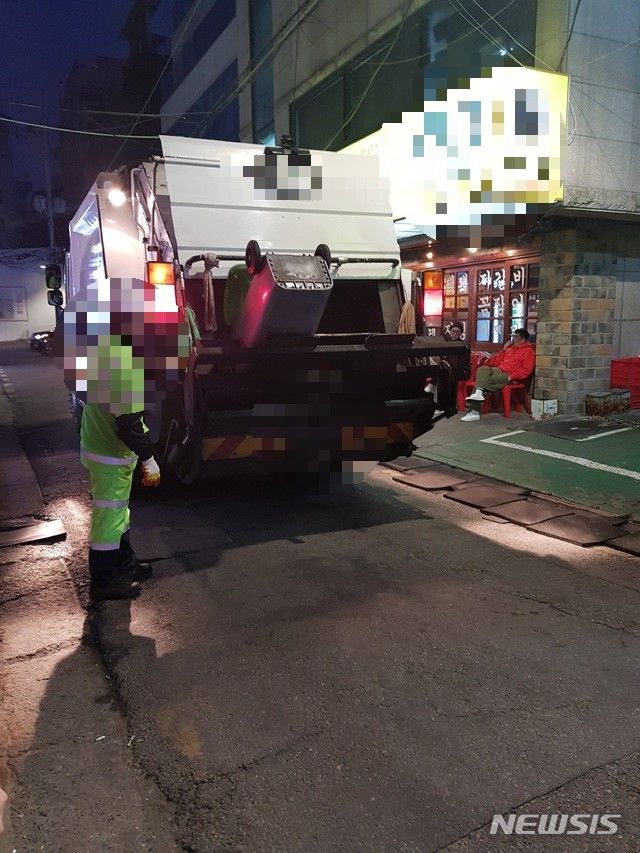Physical Address
304 North Cardinal St.
Dorchester Center, MA 02124
Physical Address
304 North Cardinal St.
Dorchester Center, MA 02124

South Korea, known for its rich culinary heritage, has a staple dish that holds a special place in its culture – kimchi. This traditional fermented side dish, made from vegetables and spices, is not only a beloved part of Korean cuisine but also a significant contributor to the country’s waste management and environmental sustainability challenges.
One of the primary causes of the problem lies in the improper classification of kimchi waste as general waste instead of food waste. This misclassification occurs when individuals, households, or even businesses dispose of kimchi in the same manner as regular trash, without considering its organic nature and potential for recycling.
This misclassification has far-reaching consequences for waste management and environmental sustainability in South Korea. When kimchi, along with other food waste, is treated as general waste, it ends up in landfills, where it contributes to the accumulation of non-biodegradable waste. This not only exacerbates the issue of limited landfill space but also poses a threat to the environment and exacerbates greenhouse gas emissions.
Improperly disposing of kimchi waste as general waste leads to missed opportunities for proper waste management and resource utilization. Food waste, including kimchi, can be recycled and repurposed into valuable resources such as animal feed, biofuel, and compost.
However, when kimchi is treated as general waste, these valuable resources go to waste, further burdening the environment and contributing to food scarcity issues. The potential for recycling and repurposing kimchi waste is lost, hindering efforts to achieve a more sustainable waste management system.
The environmental impact of misclassifying kimchi waste extends beyond landfills. When food waste, including kimchi, decomposes in landfills, it produces methane, a potent greenhouse gas that significantly contributes to climate change.
By properly separating kimchi waste as food waste and ensuring its appropriate treatment, the generation of methane can be significantly reduced, contributing to efforts to mitigate climate change and promote a more sustainable future.
South Korea has been actively working towards waste reduction and recycling goals, implementing various policies and initiatives to reduce the amount of waste sent to landfills. However, misclassifying kimchi waste as general waste undermines these efforts and makes it more challenging to achieve sustainable waste management practices.
By treating kimchi as general waste, the country’s waste reduction and recycling goals are hindered, impeding progress towards a more sustainable waste management system and compromising environmental sustainability.
Mismanagement of kimchi waste also places financial burdens on the waste management system. The collection, transportation, and disposal costs for general waste are generally higher than those for food waste.
By misclassifying kimchi waste as general waste, financial resources that could be allocated to more sustainable waste management practices are wasted. This further strains the limited resources of the waste management system, making it more challenging to achieve effective waste management and environmental sustainability.
As discussed in the previous section, the improper disposal of kimchi waste as general waste instead of food waste has significant consequences for waste management and environmental sustainability in South Korea. Let’s explore the effects of this mismanagement in more detail.
One of the immediate effects of misclassifying kimchi waste as general waste is the overburdening of landfills and the exacerbation of limited landfill space issues. Landfills are already under strain due to the increasing amount of waste generated, and the inclusion of non-biodegradable kimchi waste only worsens the problem.
This overcrowding of landfills not only poses challenges for waste management but also has long-term environmental implications. The accumulation of non-biodegradable waste, including kimchi waste, can contaminate soil and water sources, leading to environmental degradation and potential health risks.
Improperly disposing of kimchi waste as general waste contributes to environmental pollution and greenhouse gas emissions. When kimchi waste decomposes in landfills, it releases harmful substances and gases into the environment.
One of the most significant concerns is the generation of methane, a potent greenhouse gas that contributes to climate change. Methane has a much higher global warming potential than carbon dioxide, and its release from landfills further exacerbates the challenges of climate change mitigation.
The misclassification of kimchi waste as general waste leads to the wastage of valuable resources and exacerbates food scarcity issues. Kimchi, along with other food waste, can be recycled and repurposed into useful resources such as animal feed, biofuel, and compost.
However, when kimchi is treated as general waste, these resources go to waste, putting additional strain on the environment and contributing to food scarcity. This wastage of resources further highlights the need for proper waste management and resource utilization.
The mismanagement of kimchi waste undermines South Korea’s efforts to reduce waste and promote recycling. The government has implemented various policies and initiatives to encourage waste separation and recycling, aiming to minimize the amount of waste sent to landfills.
However, when kimchi waste is improperly classified as general waste, it hampers these efforts and makes it more challenging to achieve waste reduction and recycling goals. This setback not only affects the country’s environmental sustainability but also hinders progress towards a circular economy.
Misclassifying kimchi waste as general waste places a financial burden on waste management systems. The collection, transportation, and disposal of general waste are typically more expensive than those of food waste.
By mismanaging kimchi waste, financial resources that could be allocated to more sustainable waste management practices are wasted. This strains the already limited resources of waste management systems, making it difficult to invest in infrastructure, technology, and education necessary for effective waste management.
If you’re wondering where the article came from!
#